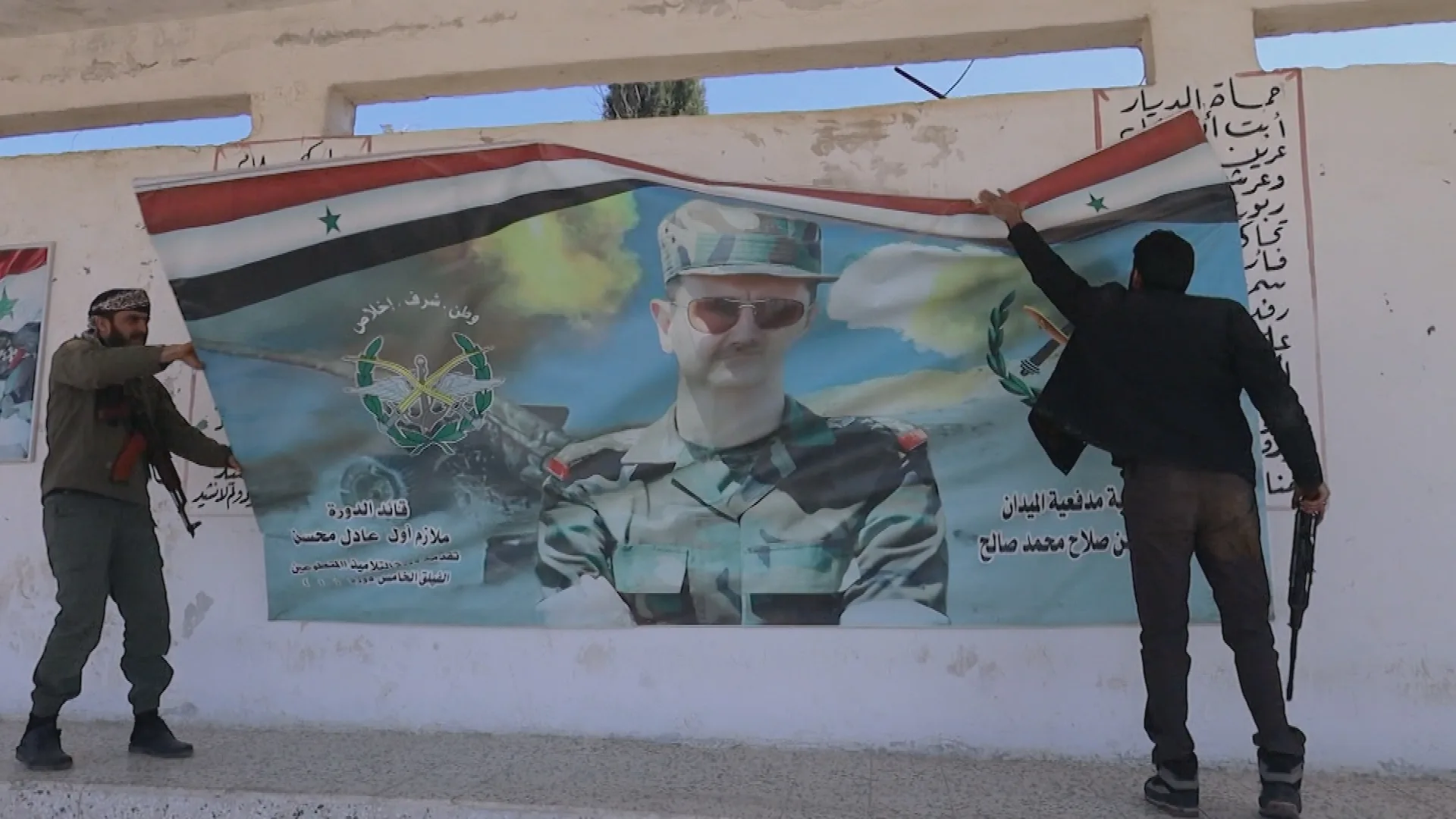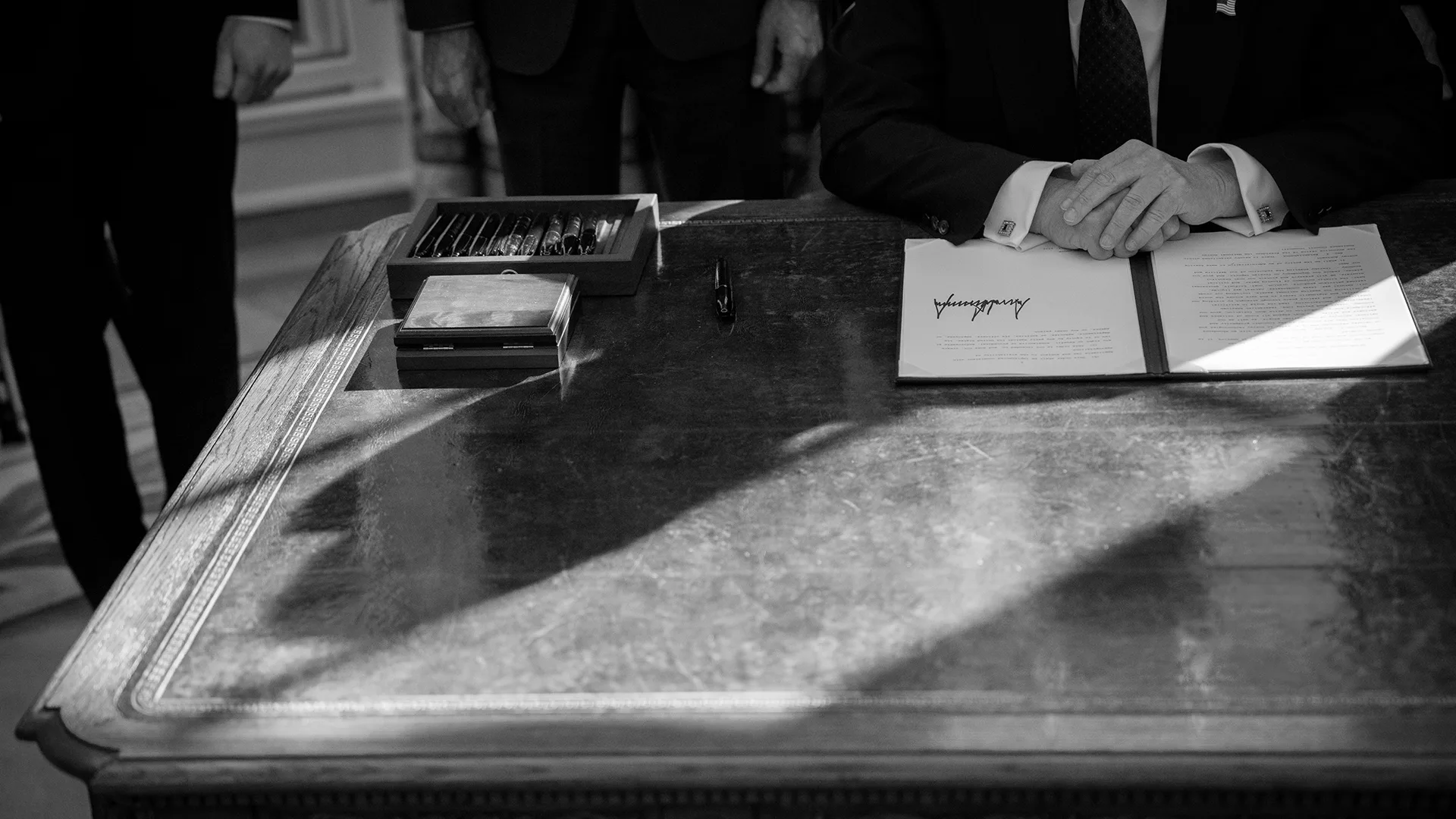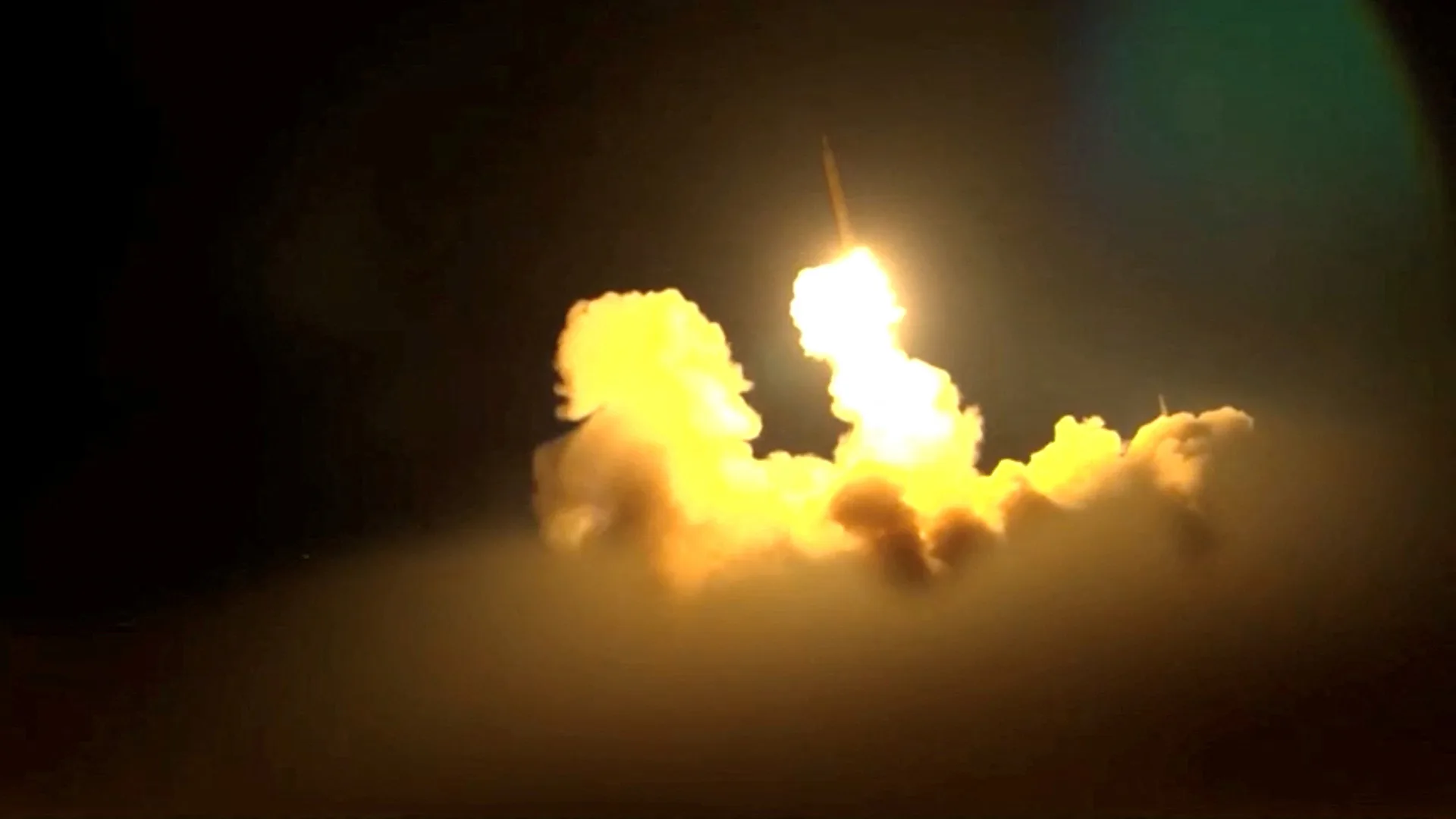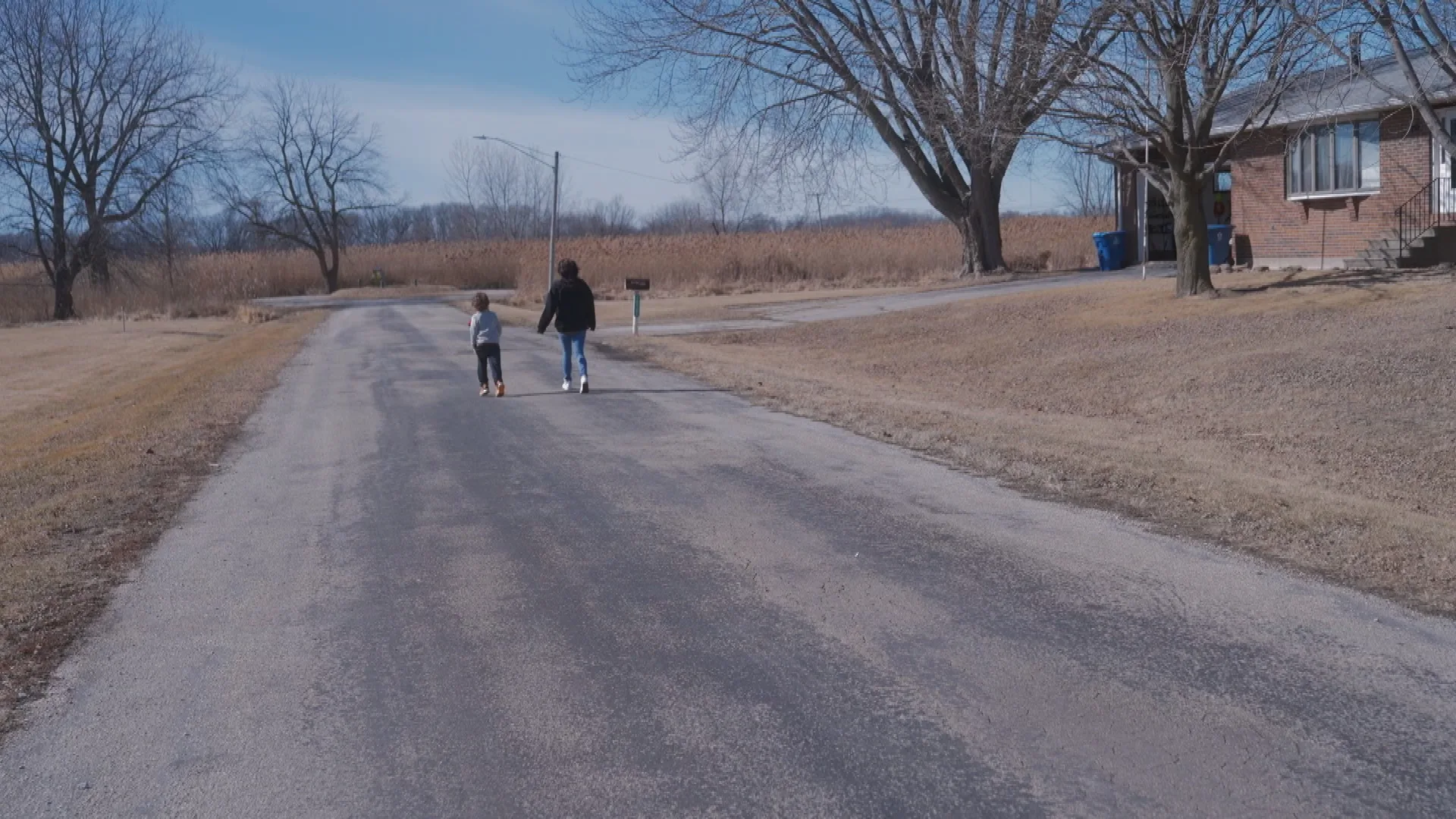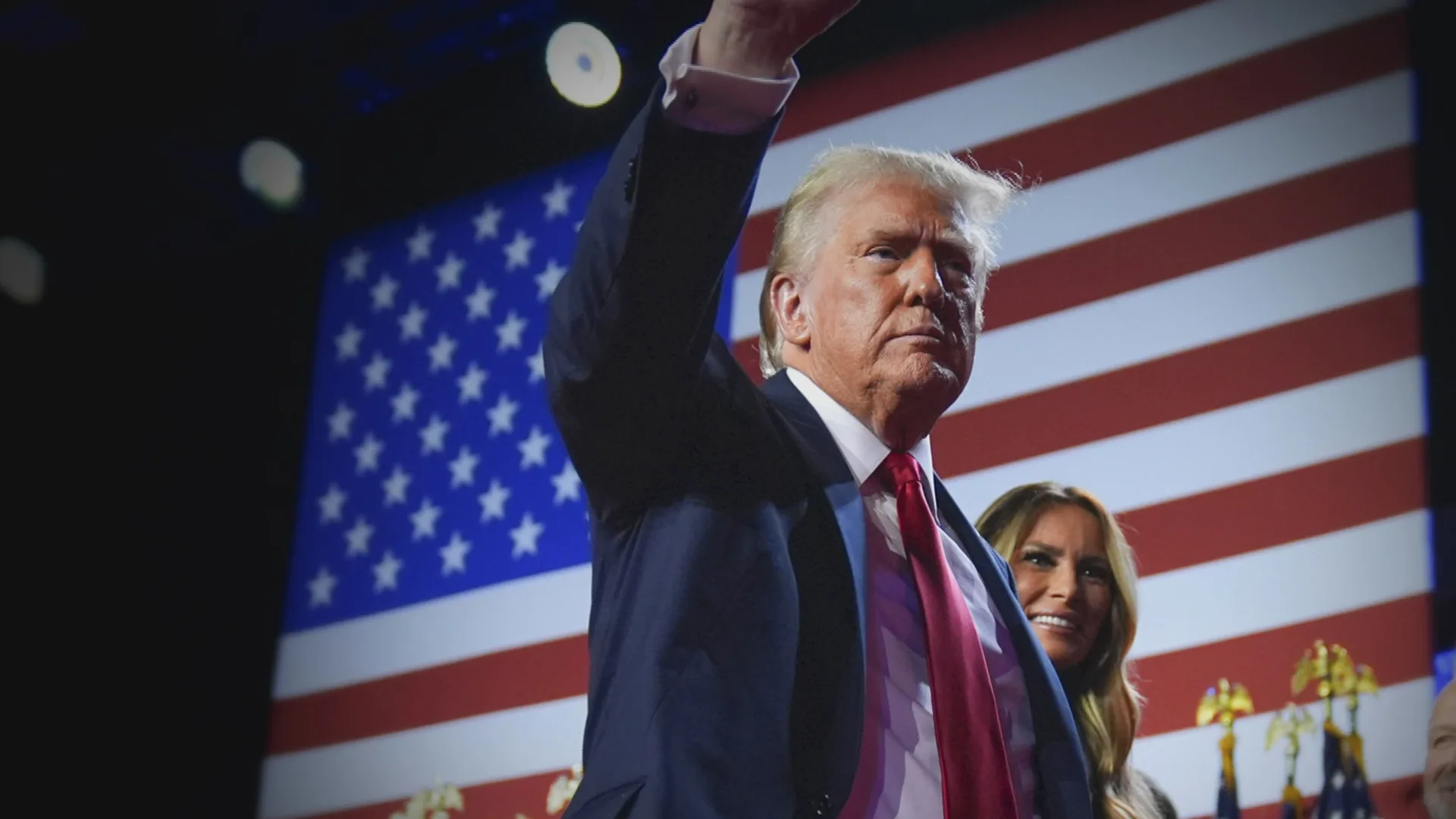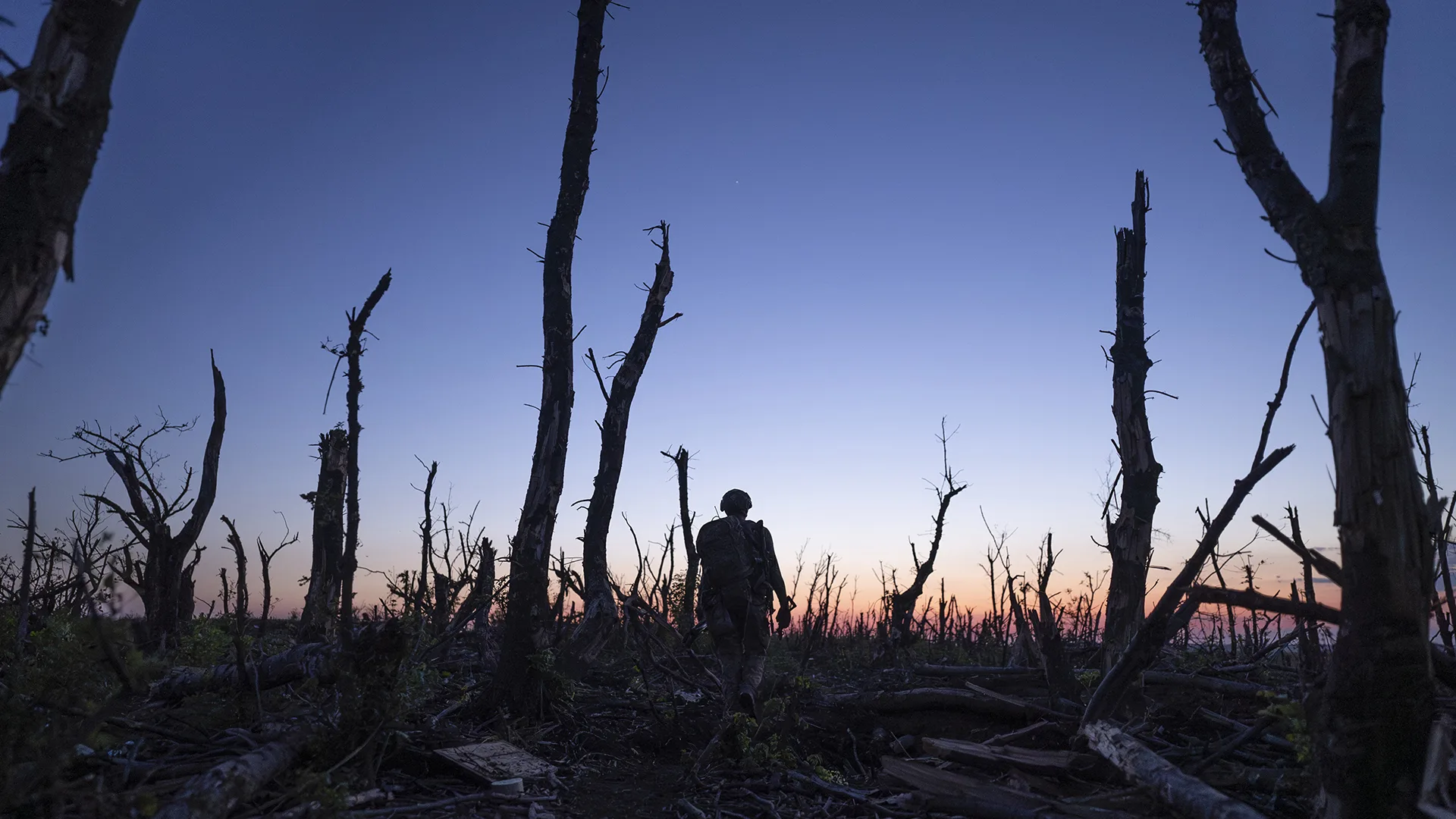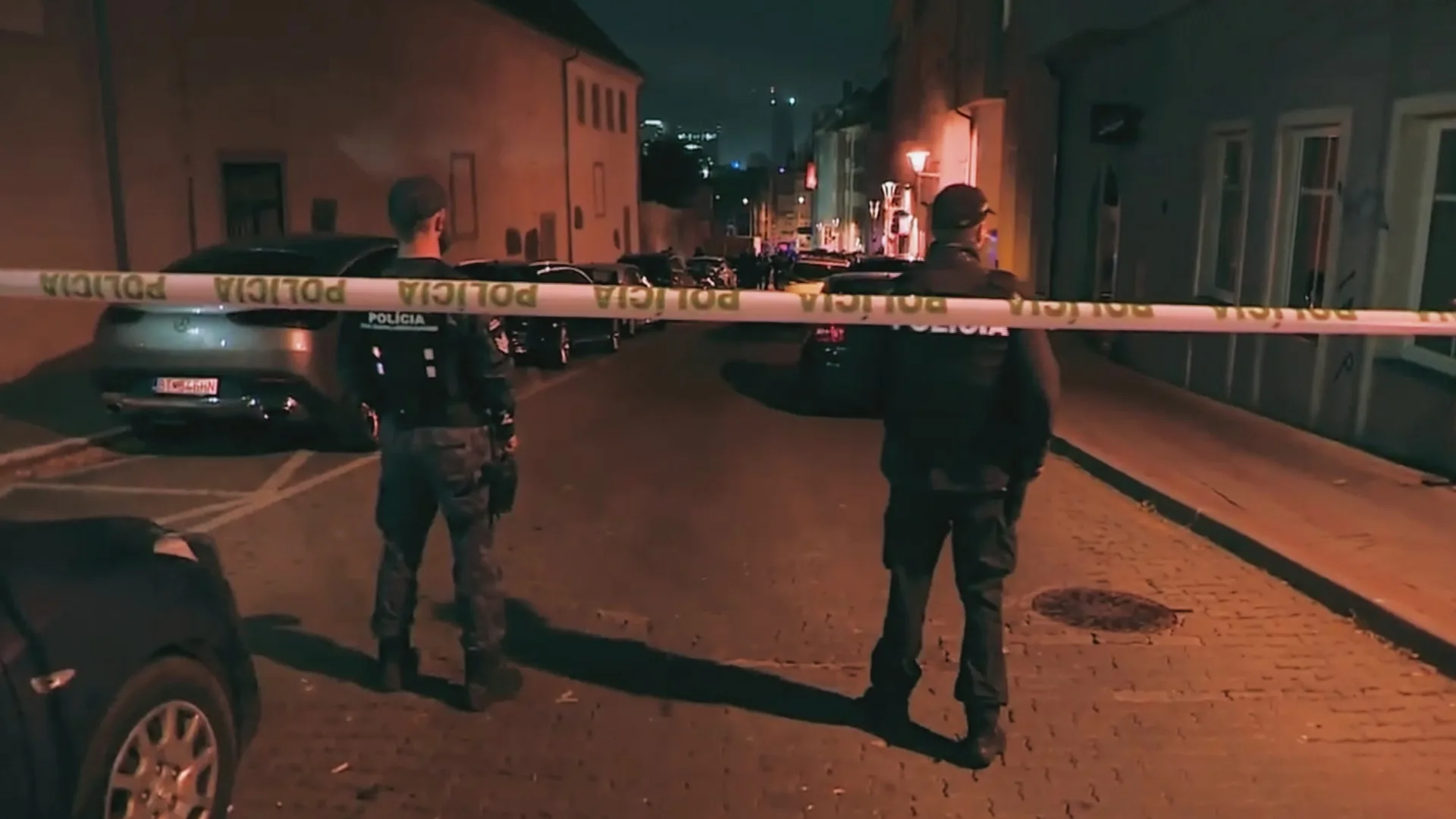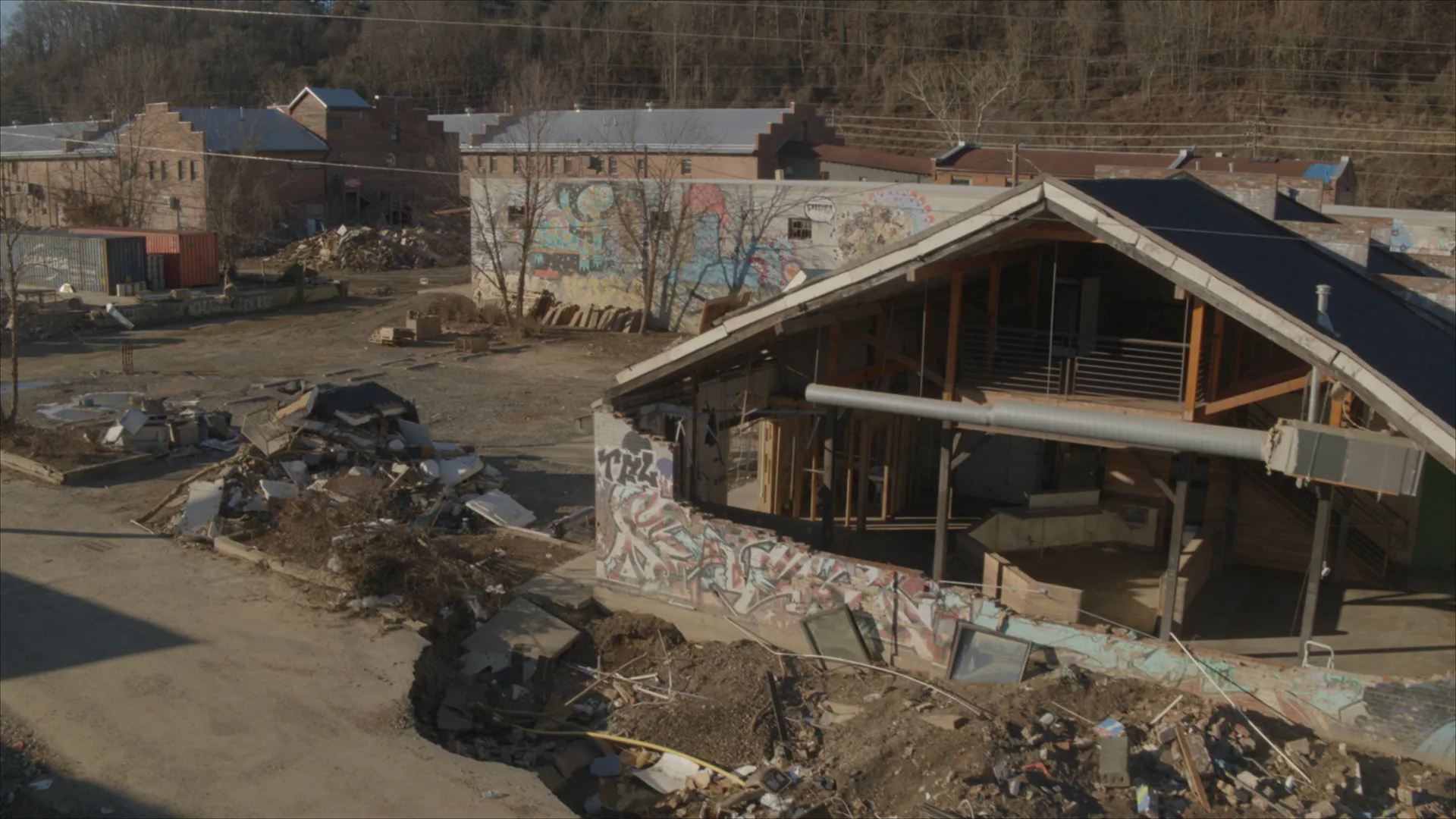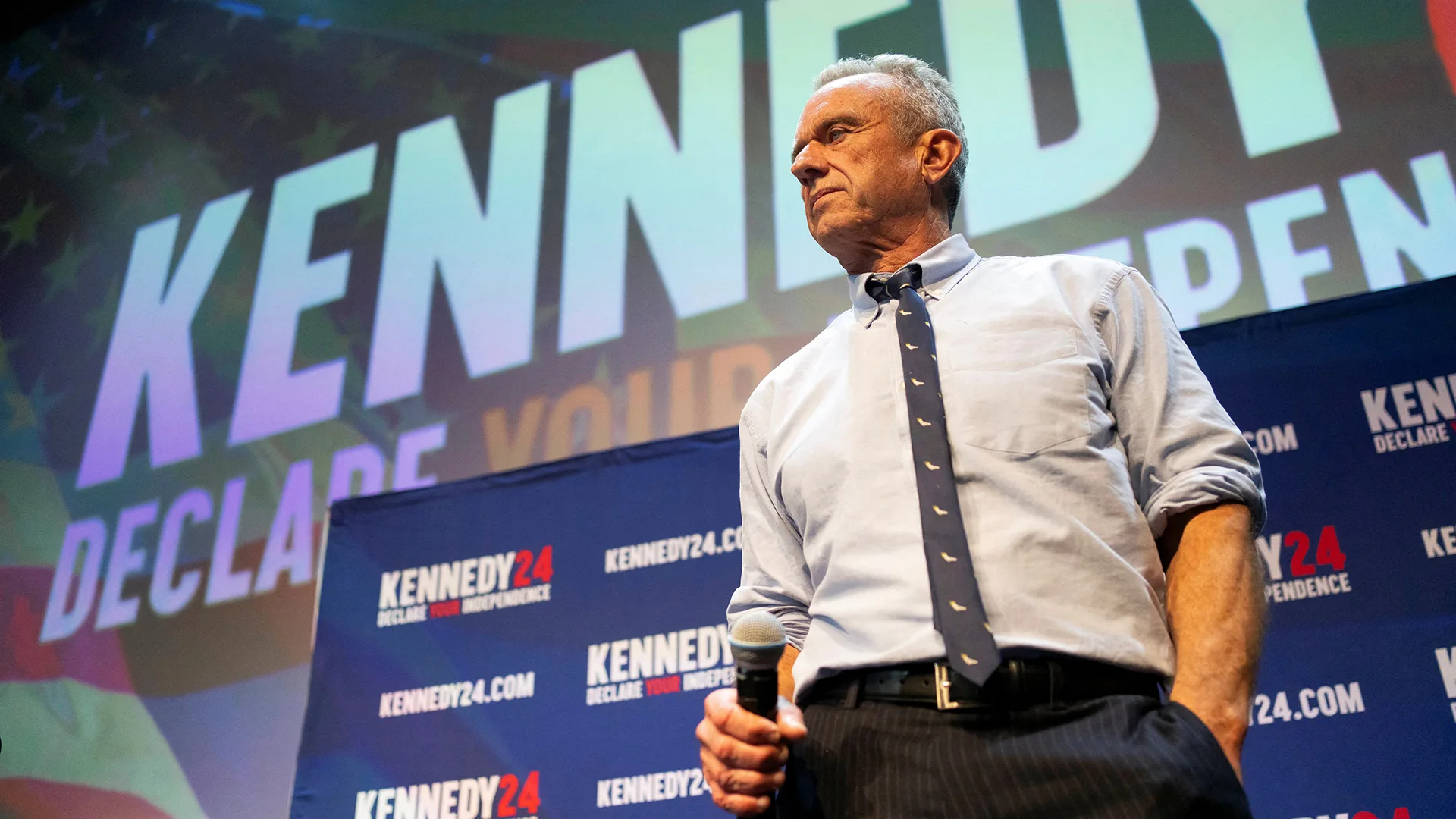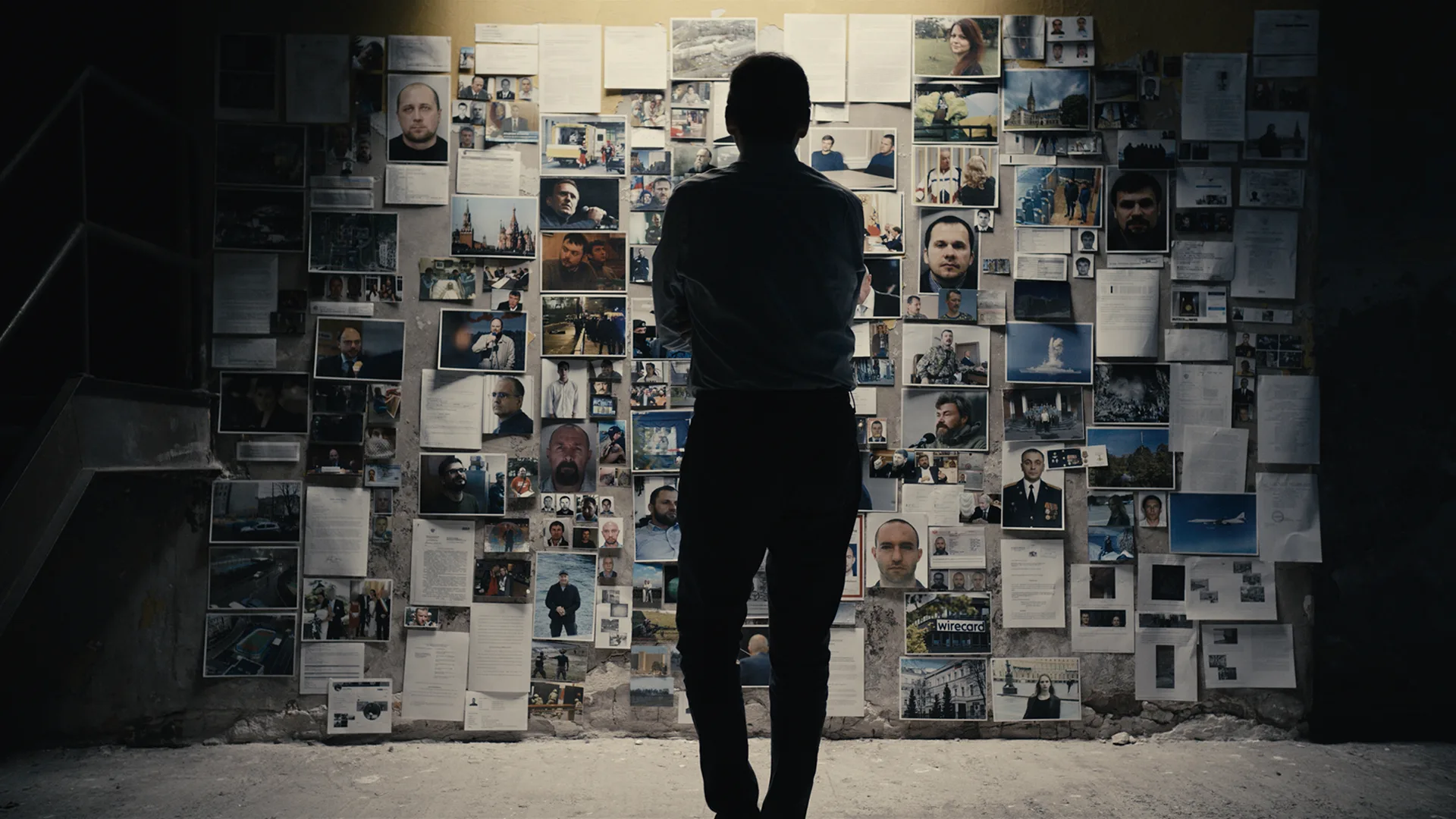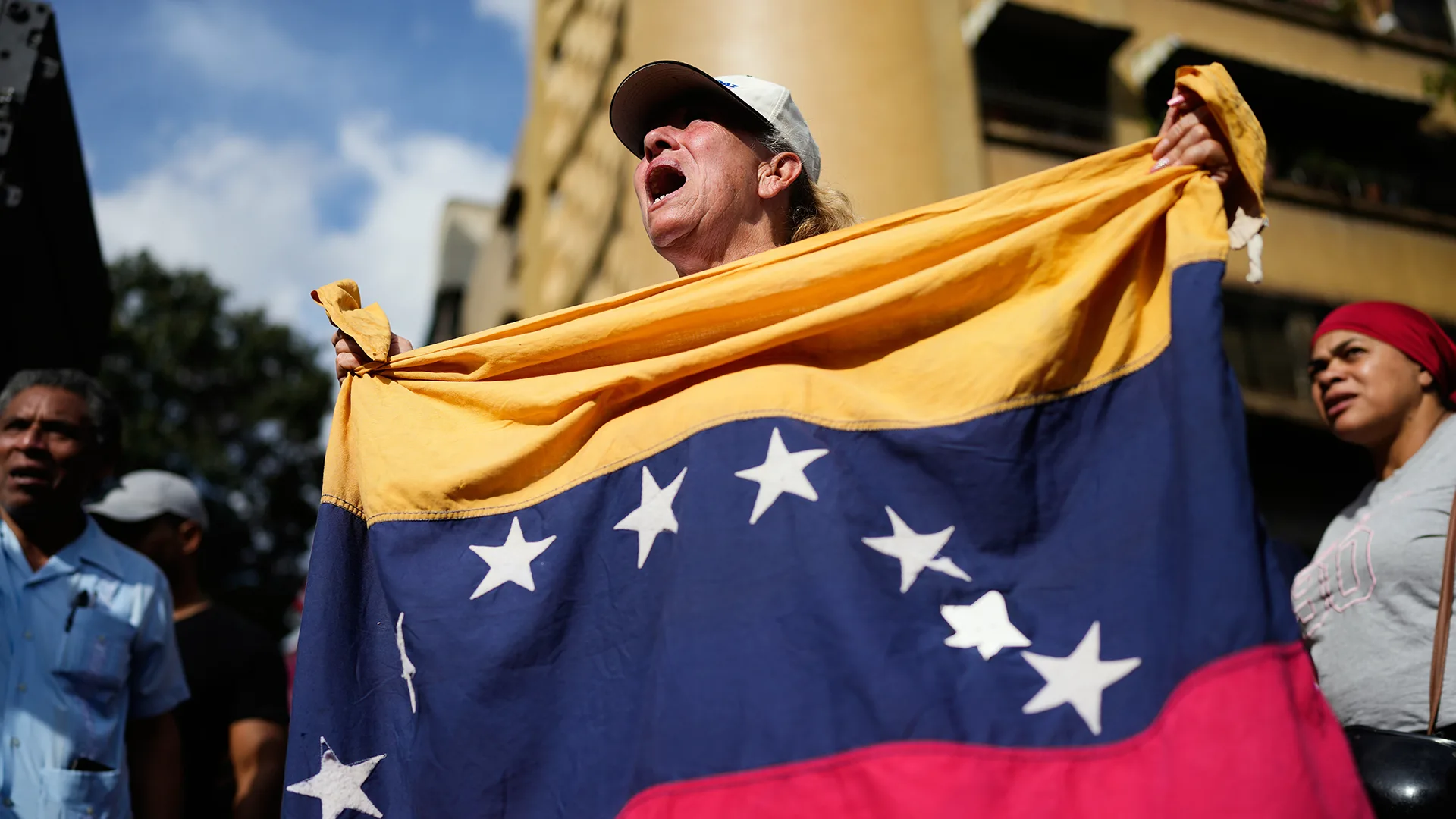Pandora Papers
November 9, 2021
27m
With ICIJ, FRONTLINE examines secret finance overseas and in the U.S
Pandora Papers
November 9, 2021
27m
Share
A massive leak of financial documents reveals hidden assets and deals of the world’s wealthy and powerful. With the International Consortium of Investigative Journalists, FRONTLINE examines secret finance overseas and in the U.S.
Also airing in FRONTLINE’s two-part Nov. 9 hour: Massacre in El Salvador, produced in collaboration with Retro Report and ProPublica.
Directed by
Produced by
Transcript
Credits
Journalistic Standards
Support provided by:
Learn More
Most Watched
The FRONTLINE Newsletter
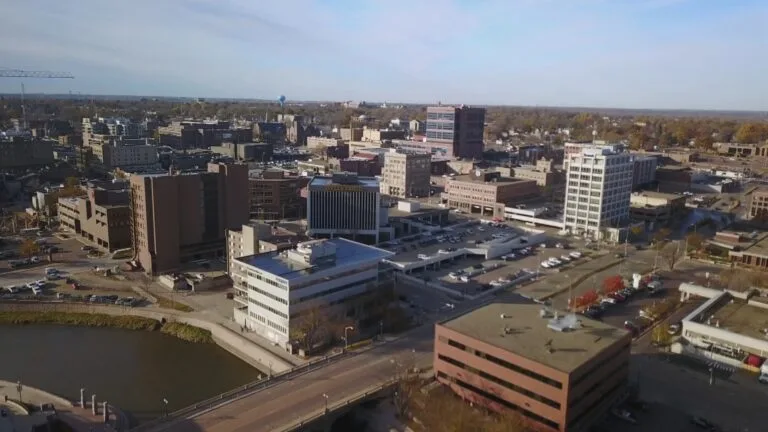
Can Federal Legislation Rein in South Dakota Trusts?
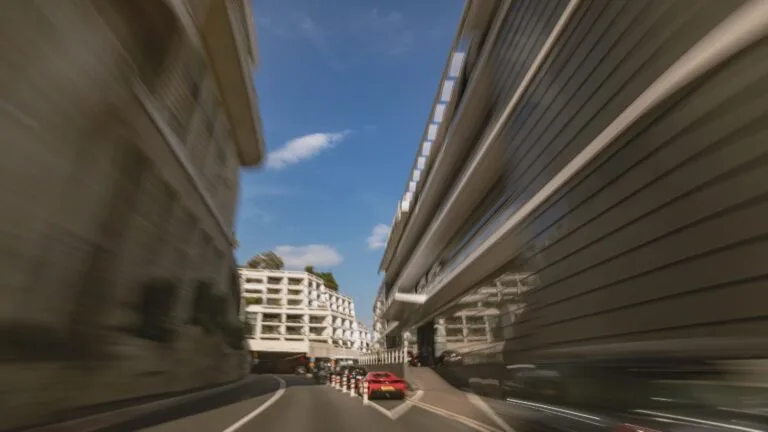
PANDORA PAPERS: Video & Major Stories From Our Partners
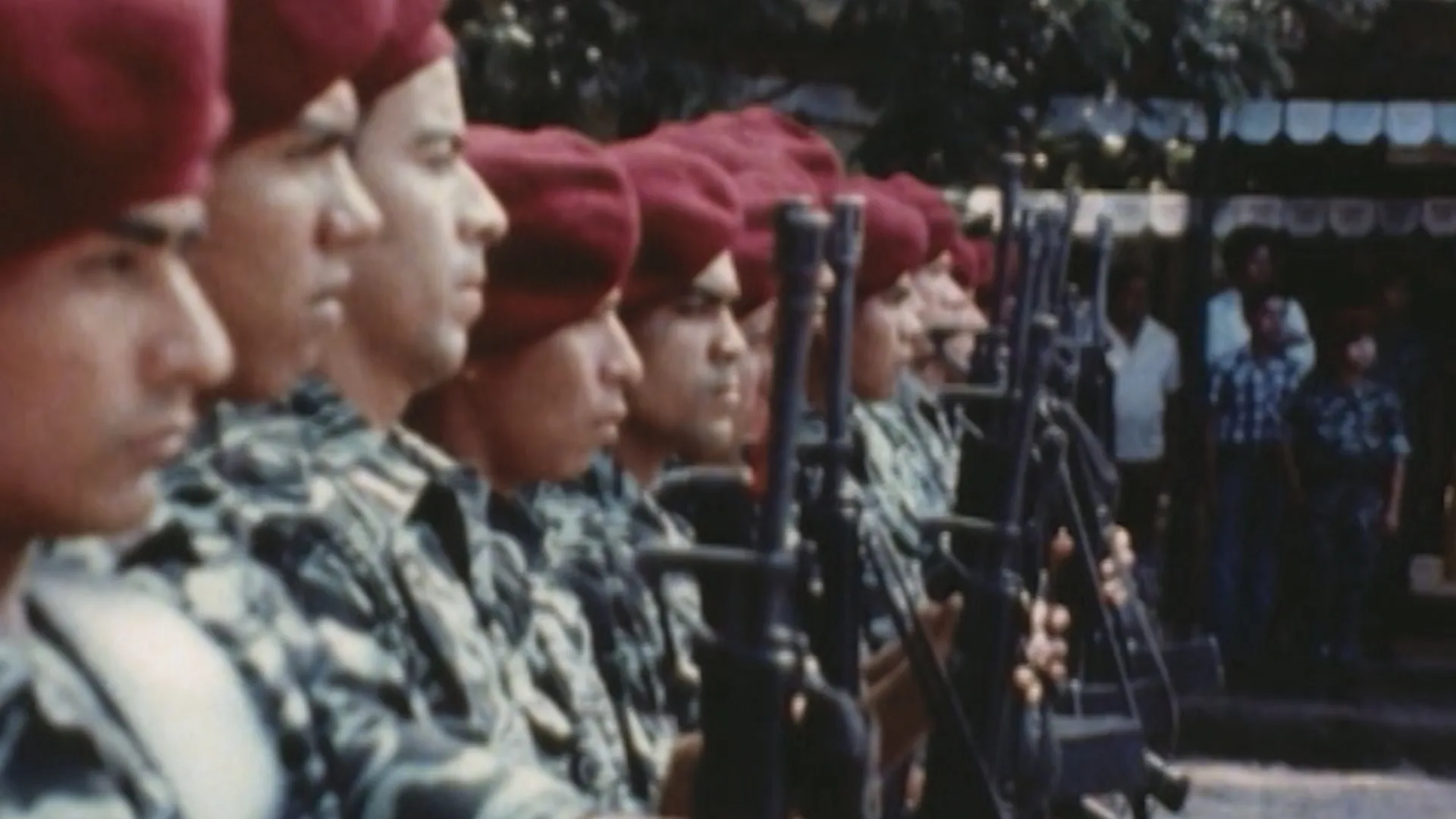
Massacre in El Salvador
Related Stories
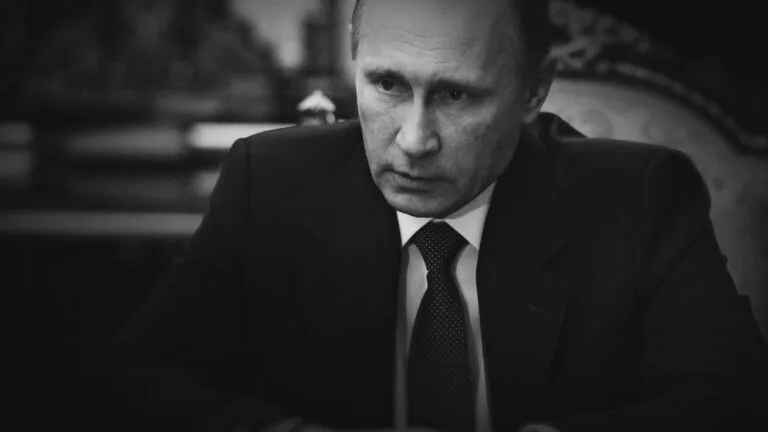
Examining Putin: As Russia’s President Wages War on Ukraine, Revisit Our In-Depth Reporting

PANDORA PAPERS: Video & Major Stories From Our Partners
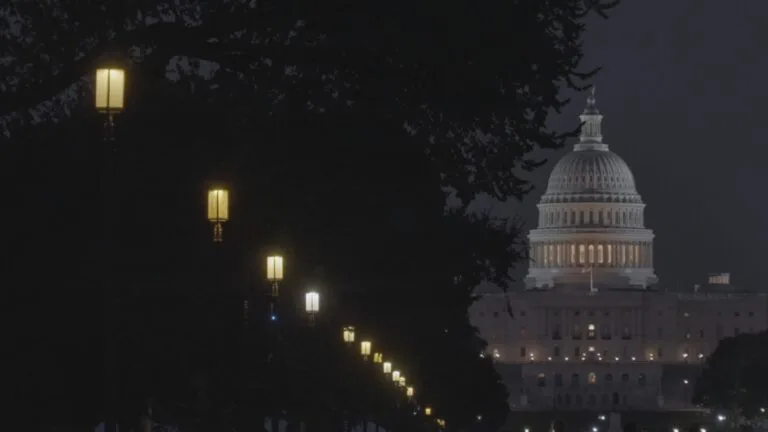
Post-Pandora Papers, a Big Week of Federal Activity Examines Hidden Wealth

Can Federal Legislation Rein in South Dakota Trusts?
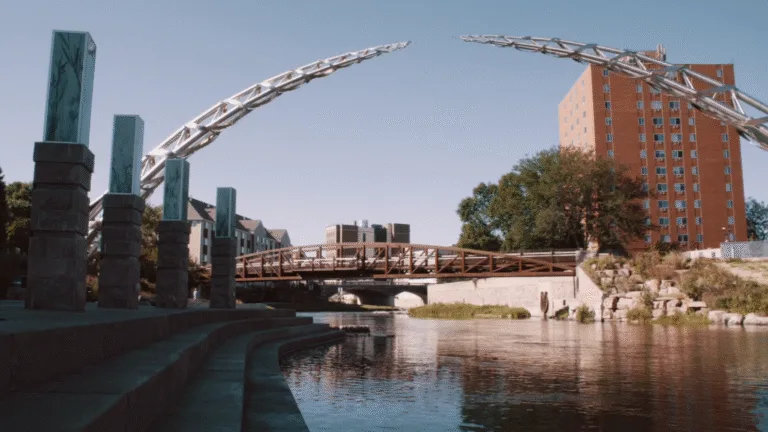
Who’s Using South Dakota as ‘A Worldwide Destination for Foreign Wealth’?

Massacre in El Salvador
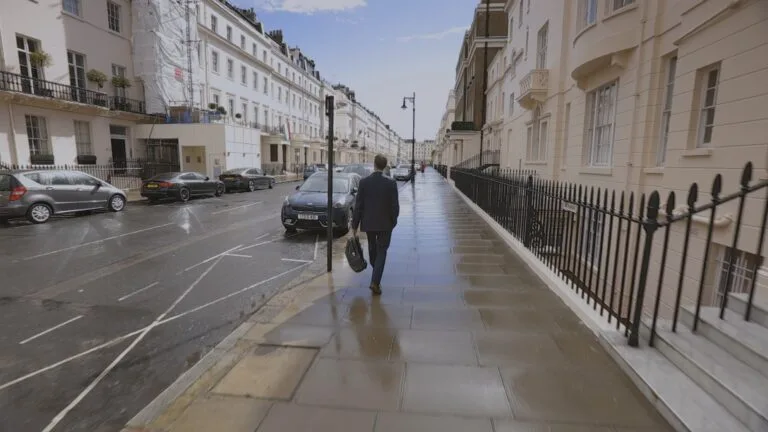
What the Pandora Papers Reveal
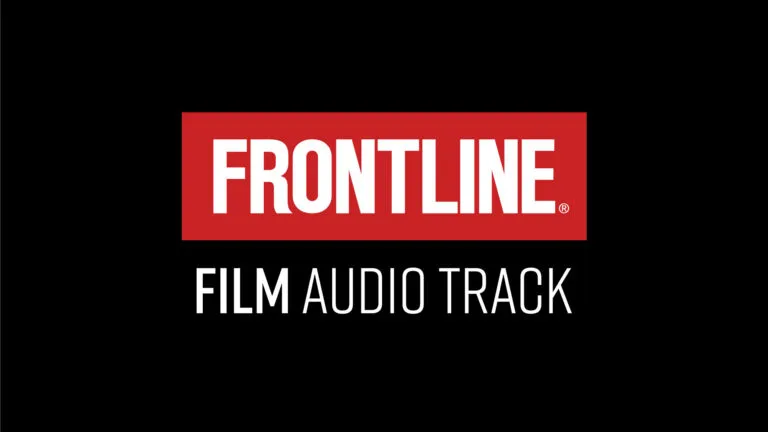
Pandora Papers
Related Stories

Examining Putin: As Russia’s President Wages War on Ukraine, Revisit Our In-Depth Reporting

PANDORA PAPERS: Video & Major Stories From Our Partners

Post-Pandora Papers, a Big Week of Federal Activity Examines Hidden Wealth

Can Federal Legislation Rein in South Dakota Trusts?

Who’s Using South Dakota as ‘A Worldwide Destination for Foreign Wealth’?

Massacre in El Salvador

What the Pandora Papers Reveal

Pandora Papers
NARRATOR:
Washington, D.C., late 2019.
NARRATOR:
The International Consortium of Investigative Journalists began receiving a trove of leaked documents—in all, nearly 12 million confidential financial files from firms that set up shell companies and offshore accounts for clients seeking to keep their wealth in the shadows.
The leaked records are called the Pandora Papers, and they expose a financial system that shields the deals and assets of some of the world’s richest and most powerful people.
WILL FITZGIBBON, Intl. Consortium of Investigative Journalists:
We arrived at the conclusion pretty quickly that this was going to be bombshell material. Bank accounts of politicians that showed tens or even hundreds of millions of dollars worth of assets that had never been publicly associated with these politicians or public figures before.
NARRATOR:
Over the past two years, journalists from 150 news organizations, including FRONTLINE, have been examining the leaked documents—emails, spreadsheets, contracts.
MALE JOURNALIST 1:
I am Zach Dubinsky. I’m based in Toronto, Canada.
FEMALE JOURNALIST 1:
I’m from Bosnia.
MALE JOURNALIST 2:
—from Chile.
MALE JOURNALIST 3:
I am based in Washington, D.C.
NARRATOR:
In an online meeting, FRONTLINE producers Evan Williams and James Oliver joined other journalists working on the story to discuss where the reporting was leading.
EVAN WILLIAMS, FRONTLINE:
Looking at it, there seems to be a lot of Russians.
FEMALE JOURNALIST 2:
There are a lot of Russians. There are a lot of people from Putin’s inner circle.
WILL FITZGIBBON:
That meeting is the starting gun. That sets hundreds of journalists off around the globe. Within 12 or 24 hours, you have reporters from the Philippines to Israel to Brazil who are announcing that they’ve found offshore secretive deals related to finance ministers or their transport minister or billionaires from their country.
NARRATOR:
In the documents, the reporters were tracing how billions of dollars were being hidden from tax authorities, criminal investigators, creditors and the public.
EVAN WILLIAMS:
Hey, Greg.
NARRATOR:
Early on, we began talking to Greg Miller of The Washington Post about what he was finding.
GREG MILLER, The Washington Post:
There are all kind of windows into bigger stories that you’ve been covering for a long time, and then you see, wow, there’s more to that story than I was capable of seeing or understanding previously, and you have to build it out with material outside the files.
NARRATOR:
Around this time, a report surfaced on a Russian investigative website about a woman named Svetlana Krivonogikh.
GREG MILLER:
It was a story about a woman from St. Petersburg who had become mysteriously extremely wealthy. This very detailed account, they connected her to the Russian president, Vladimir Putin. Their story alleged that she had a secret relationship with Vladimir Putin and that they had in fact perhaps even had a child in or around 2003.
NARRATOR:
Journalists from the ICIJ collaboration searched for the name Svetlana Krivonogikh, and they found it. The files showed her listed as the “beneficial owner” of a company based in the British Virgin Islands. It was called Brockville Development.
GREG MILLER:
The documents surrounding that shell company indicate that it was created to hold property. And then it indicates that that property is located in Monaco.
NARRATOR:
We travelled with Miller to Monaco to find out more. On the Mediterranean Sea, Monaco is low-tax principality popular with wealthy people from around the world. Miller and two other reporters were here trying to flesh out Krivonogikh’s holdings and her connections to Putin.
Jörg Schmitt is an investigative reporter from from Germany’s Süddeutsche Zeitung. Luke Harding is from Britain’s Guardian newspaper and has reported on Putin’s inner circle.
LUKE HARDING, The Guardian:
I kind of know these guys. I spent four years in Moscow as The Guardian’s bureau chief there, and one thing I do know about them is they are very secretive, especially when it comes to money. But also they’re rather paranoid.
GREG MILLER:
We’re here for what I think is one of the most important stories and one of the most fascinating stories in the Pandora Papers.
NARRATOR:
What the reporters were finding in the leaked documents was yielding fresh evidence of how those close to Putin, like Krivonogikh, were amassing hidden fortunes abroad.
LUKE HARDING:
What’s happening is that Putin and his friends, his inner circle, particularly friends from St. Petersburg, have become extremely rich, mainly on the back of state resources—oil, gas, things like that—and that they’ve created these colossal offshore structures where their assets are being hidden. And also that it’s being done with help from the West. It’s being done by an army of accountants, lawyers, company formation agents, in this tax haven, in other places.
NARRATOR:
In the case of Krivonogikh, a month after her child was born the shell company, Brockville, was formed and later purchased an apartment here.
Luke Harding trawled through the property records and found the address.
LUKE HARDING:
Which showed that Svetlana, Putin’s close friend, actually owned a rather nice flat in the marina just opposite us which she had bought for 3.6 million euros in 2003, five months after she gave birth to Putin’s alleged daughter.
NARRATOR:
The journalists went to the apartment in the prestigious Monte-Carlo Star complex. A woman who answered the door said no one named Svetlana Krivonogikh lived there.
Svetlana Krivonogikh did not respond to repeated requests for comment.
The investigative website Proekt has estimated her assets in Russia alone are worth around $100 million.
LUKE HARDING:
She was suddenly going, a bit like Cinderella, from being a cleaner in a store to having the lifestyle of a princess, with properties in Moscow and St. Petersburg, where she’s from, in Sochi on the Black Sea, a share in a bank closely associated with the Putin regime called Bank Rossiya and, I discovered, a secret flat in Monaco.
NARRATOR:
Nothing in the leaked documents directly linked Krivonogikh to Putin. The Russian president has long faced claims that he has helped enrich his inner circle and used them to hide his own wealth—allegations he and the Kremlin deny.
But in the trove of leaked files there was something that tied Krivonogikh and others close to Putin together. They all had used the same financial firm: Moores Rowland in Monaco.
GREG MILLER:
This company here in Monaco has done a lot of work for people who are very close to Vladimir Putin. This company, Moores Rowland, shows up in the documents as one of the companies that work with Putin allies to set up shell companies.
NARRATOR:
One of those Putin allies found in the documents is oil trader Gennady Timchenko. He’s a close associate of President Putin and has been accused of using his connections to amass an oil-trading fortune estimated at $20 billion.
As with Krivonogikh, Moores Rowland Monaco helped Timchenko by setting up shell companies used to buy a yacht and jets, and it also assisted in setting up a company that would become part of his oil-trading empire.
The documents also show that Moores Rowland Monaco set up a shell company for Peter Kolbin, a childhood friend of Putin who’s since died. He was suspected by U.S. officials and others of holding hundreds of millions of dollars in assets for him.
GREG MILLER:
One of the biggest questions about Russia is how does it work for Vladimir Putin? There’s widely held suspicion among financial experts and U.S. officials and Western intelligence officials that he uses something called “wallets”—basically individuals who he trusts. The supposition is that they are then enlisted to set up accounts holding money that really belonged to him.
NARRATOR:
A law firm representing Gennady Timchenko said that he “has always acted entirely lawfully throughout his career and business dealings.”
Moores Rowland Monaco officials declined to comment on the firm’s work for clients, citing confidentiality. They said in a statement that “at all times it complied with its obligations and applicable laws and regulations.”
Unlike with Putin, in many cases the leaked documents were leading directly to world leaders themselves.
WILL FITZGIBBON:
Yeah, lovely, OK. There we go.
NARRATOR:
With ICIJ reporter Will Fitzgibbon, we started examining these figures.
WILL FITZGIBBON:
We’re certainly seeing powerful people, for various reasons. Maybe for tax purposes, maybe simply to hide the fact that they’re multi-multi-multi-multi-millionaires from their own citizens, who often live in poverty.
NARRATOR:
In all, there were more than 300 public officials around the world and 14 cases involving current leaders of countries.
WILL FITZGIBBON:
Very quickly, we established a pattern, which was that hundreds and hundreds of politicians, from heads of state to ministers to diplomats, were active participants and beneficiaries of this offshore system. And I remember it dawning upon me quite suddenly, how on earth can we hope to reform the offshore system, as so many experts say needs to be done, if all of these politicians are benefiting from it?
NARRATOR:
One leader was the owner of more than 30 shell companies. In this document he is referred to only as “you know who.” This document shows 16 of the companies that he owned, all registered in offshore tax havens.
The owner: Abdullah al Sharif al Hussein. The address listed: Raghadan Palace, Amman.
He is the king of Jordan, who has championed government transparency.
GREG MILLER:
The king and Jordan have been an important American ally for a long, long time, has more or less gone along with the United States on its adventures, good and bad, in the Middle East. A country that the United States has compensated to the tune of billions of dollars for its role.
NARRATOR:
The leaked documents showed that while his country was undergoing increasing economic hardship, he was making secretive financial transactions using a network of offshore accounts.
GREG MILLER:
When somebody has that many shell companies, it raises a lot of questions right away. What are they for? How is he using them? That’s where the hunt begins.
NARRATOR:
One of the companies was called Nabisco Holdings.
WILL FITZGIBBON:
Nabisco was listed in the Pandora Papers as a company belonging to the king, but it didn’t have any extra information. What we were able to do, though, was to obtain land records from Los Angeles
and confirm that a company with that same name was the owner of a $33.3 million luxury mansion overlooking the ocean in Malibu. And then we realized actually that there were two neighboring houses right next door, also owned by the king of Jordan through different shell companies.
NARRATOR:
Based on the documents, the companies tied to the king spent nearly $70 million on these homes.
The search for properties owned by the king’s companies also led to Washington, D.C., where records show he spent nearly $10 million on luxury condominiums in Georgetown.
WILL FITZGIBBON:
This is not illegal in any way, and our reporting doesn’t suggest that that’s the case. I think it’s very important for a few reasons. Let’s remember that the first property here was bought in 2012 for about $6.5 million. That’s the same year in Jordan that thousands of people had poured onto the streets to complain about poverty and corruption, because it puts in to sharp relief the contrast between million-dollar luxury here and the reality of average Jordanians who live under this king.
NARRATOR:
And the king’s holdings stretched even farther. In London with Greg Miller, we used information from the leaked documents and property records to find addresses in the city tied to King Abdullah.
GREG MILLER:
So that lines up with where we are here, a 2 million pound property purchased by Kinnevere Enterprises, aka the king of Jordan.
NARRATOR:
In all, the documents show the king has spent millions of dollars over the past decade through shell companies for real estate here, including $13 million for a collection of apartments near Buckingham Palace.
WILL FITZGIBBON:
In the end, our investigation revealed that the king had owned more than 30 shell companies and had used those companies to buy property around the world worth more than $106 million.
The king is a king. He’s expected to have money. But I think what interested so many of us reporters about his secret property empire was precisely that: It was secret.
NARRATOR:
The U.S. provides Jordan with more than a billion dollars in aid every year. In response to questions, American officials said the funding is tracked carefully and they’ve seen no evidence it has been misused.
In a statement, the Jordanian royal family said some of the facts were being distorted and exaggerated, but they did not specify what. They also said there was nothing “unusual or improper” with the king’s transactions and that the homes are for both official and private visits. As for the secrecy, the statement said it’s for the privacy and safety of the king and his family.
MALE VOICE:
Thank you for joining, everyone. Good to see you all here.
NARRATOR:
In early 2021, the ICIJ held an online meeting to discuss a new and surprising aspect of the reporting coming from the documents.
WILL FITZGIBBON:
We finally have some data about the kinds of people who are using secretive trusts that are in the United States.
NARRATOR:
They were focusing on evidence that wealthy people from abroad were using trusts to hide money in the U.S.
FEMALE VOICE:
If you find that, take a look. It may be an interesting lead.
NARRATOR:
We began working with Washington Post reporter Debbie Cenziper to investigate.
EVAN WILLIAMS:
How are you doing?
DEBBIE CENZIPER, The Washington Post:
It’s a little bit overwhelming right now, and it’s getting a little bit easier for me as the days go on and I become more familiar with the documents. One of the things that has surprised me most this early on, and I’m just starting and still working at it, is I always thought this was an issue offshore. This was an issue somewhere else—in the Caribbean somewhere, on an island, perhaps. And what I’m finding and what I’m focusing on at this early stage is how the U.S., and specifically some states in the U.S. that you wouldn’t expect, are really helping to—really becoming go-to destinations.
NARRATOR:
The U.S. has long condemned offshore financial havens, but the documents showed how people have been sheltering their money in states promising protection and secrecy that rival traditional offshore locations. Will Fitzgibbon and Debbie Cenziper noticed in the documents that one state stood out: South Dakota.
WILL FITZGIBBON:
I’d heard rumours of South Dakota being an increasingly aggressive tax haven and attracting billionaires and millionaires from around the world. I simply just started to dig into the data, searching “South Dakota” into our search box in these 12 million records that we had. And pretty quickly I got a sense that there was something there that I wanted to explore.
DEBBIE CENZIPER:
We early on found a document in the leaked records that showed there were a number of trusts established in South Dakota. And of course our question was, “Who’s establishing trusts in South Dakota? What—why would someone from 2,000 miles away turn to Sioux Falls, South Dakota?” And we just really wanted to answer that question.
NARRATOR:
The reporters found clients from 41 countries had set up more than 200 trusts in South Dakota and other states. There is no evidence in the documents that the trusts held criminal proceeds, which they are barred from knowingly accepting. But nearly 30 of them held assets connected to people or companies accused of fraud, bribery or human rights abuses.
WILL FITZGIBBON:
If you set up a trust in South Dakota, those records can be sealed by a court. So that’s an incredibly strong incentive for someone whose primary objective is to make sure that his or her assets are not discoverable by a reporter or their tax authority back home.
NARRATOR:
This document shows a South Dakota trust for Colombian textile magnate Jose Douer Ambar. Ambar had a well-publicized past before setting up the trust: He had forfeited $20 million to the U.S. government as part of a settlement of a drug money laundering case. He died in 2020.
The documents also show three trusts in South Dakota created for Ecuadorian bankers William and Roberto Isaías. The brothers had been convicted in absentia in Ecuador for embezzling government bailout money from their failed bank. The trusts owned several shell companies in the British Virgin Islands. One held a family inheritance valued at $5-10 million. The Isaías conviction was later overturned amid controversy. Neither of the brothers responded to requests for comment about the trusts.
DEBBIE CENZIPER:
What we found so far is that roughly 20 high-profile politicians and industrialists from countries ranging from Ecuador to India who have been in trouble in their home countries for everything from human rights abuses to banking fraud moved their assets and wealth into the United States under the noses of investigators.
We’re talking about people who have been in all kinds of trouble, accused of some very bad things, who are using this system to hide their wealth, not only potentially from the governments and the taxing authorities in their home countries, but also from the victims in their home countries who might have a claim to some of that money.
NARRATOR:
Two companies are prominent in the leaked documents: Trident, which created Ambar’s trust, and the South Dakota Trust Company, which was used by the Isaías brothers. Neither firm would answer questions about their clients but said in statements they follow applicable regulations and perform extensive due diligence.
DEBBIE CENZIPER:
We realized that over the years, a whole industry of banking and trust leaders had pushed legislation at the state level to make South Dakota into this worldwide destination for foreign wealth. And they did this by passing a number of laws that really appeared incremental at the time, but they were huge in this industry.
NARRATOR:
The center of this industry is Sioux Falls. Over the past decade, the amount of money in trusts in the state has more than quadrupled to $360 billion, fueled by dozens of laws that help protect trusts from creditors, taxing authorities and foreign governments.
DEBBIE CENZIPER:
I was struck when I came in from the airport last night that the whole skyline of Sioux Falls, so to speak, is banks and trusts.
We’ll give this a shot.
NARRATOR:
We came here with Cenziper and Fitzgibbon to meet a former lawmaker who has raised concerns about how the state has made itself such a welcoming place for the trust industry.
CRAIG KENNEDY, State senator, 2017-21:
Part of what’s troubled me about this trust industry, frankly, is that they have basically captured the state Legislature and can essentially pass whatever they put together. I think they are trying to design a system that works well and is safe. However, I also know that there are people in the world who are just as smart and would take advantage of you if they thought they could. And that’s my concern, is that we get ourselves set up where all of a sudden we become like a Switzerland or like a Panama. I would be concerned about reputational damage to this state.
NARRATOR:
The South Dakota Division of Banking said in a statement it routinely audits trust companies and that the firms are required to do intensive vetting, with extra attention to foreign clients. But the leaked documents have heightened concerns about the secrecy of trusts and the limitations of existing state and federal oversight and regulation.
DEBBIE CENZIPER:
We already found evidence of people credibly accused of crimes and other wrongdoing breaching the U.S. financial system. What about terrorists? What about drug traffickers? What about dictators or their associates? We just don’t know. Because though we had almost 12 million documents, that’s just this little tiny glimpse into this thriving industry in the United States.
NARRATOR:
Over the past month, journalists from around the world have published hundreds of stories stemming from the leaked Pandora Papers.
WILL FITZGIBBON:
We have never seen this many heads of state, ministers, politicians and global billionaires in one location before. My interest as a journalist is to connect these stories to contemporary issues in our society and the ills of our society. And many experts say that the secret financial system is a part of that, and they’re the kind of stories I’m hoping that we can tell.
DIRECTED BY James Oliver
PRODUCED BY Evan Williams James Oliver
PRODUCER Charlie Young
ASSOCIATE PRODUCER Rory Tinman
SENIOR PRODUCER Eamonn Matthews
REPORTER Richard Bilton
EDITORS Andy Kemp Raul Sacristan Steve Gibbs
CAMERA Dave Langan
ADDITIONAL CAMERA Zoeann Murphy
PRODUCTION MANAGER Lisa McGarry
PRODUCTION COORDINATOR Lisa Magee
GRAPHICS Chris Laing Chris Bowers
ONLINE EDITOR/COLORIST Jim Ferguson
SOUND MIX Jim Sullivan
ARCHIVIST Jo St Mart
PRODUCTION ASSISTANT Toby Fitzpatrick
ARCHIVAL MATERIALS Shutterstock Getty Alamy BBC Motion Gallery Pond5
ADDITIONAL MATERIALS Proekt Media
FOR BBC PANORAMA
DEPUTY EDITOR Karen Whiteman
EDITOR Rachel Jupp
EXECUTIVE PRODUCER Andrew Head
Original funding for this program was provided by public television stations, Corporation for Public Broadcasting, Ford Foundation, Abrams Foundation, John D. and Catherine T. MacArthur Foundation, Park Foundation, FRONTLINE Journalism Fund with major support from Jon and Jo Ann Hagler and additional support from Koo and Patricia Yuen and Laura DeBonis.
FOR FRONTLINE
DIRECTOR OF POST PRODUCTION Megan McGough Christian
SENIOR EDITOR Barry Clegg
EDITOR Brenna Verre
EDITOR Joey Mullin
ASSISTANT EDITOR Tim Meagher
PRODUCTION ASSISTANT Stevie Jones
FOR GBH OUTPOST EDITOR Deb Holland
SENIOR DIRECTOR OF PRODUCTION TECHNOLOGY Tim Mangini
INTERNS Ryan Everitt Sophia Gardner Sabrina Lee Raya Tarawneh Juliana Torres
FRONTLINE / EMMA BOWEN FELLOW Maya Chadda
SERIES MUSIC Mason Daring Martin Brody
EXECUTIVE ASSISTANT Will Farrell
OUTREACH SPECIALIST Joshua Rae
IMPACT PRODUCER Erika Howard
DIGITAL WRITER & AUDIENCE DEVELOPMENT STRATEGIST Patrice Taddonio
AUDIENCE ENGAGEMENT EDITOR Anahita Pardiwalla
DATA ANALYST Ben Abrams
ASSISTANT EDITOR, DIGITAL Tessa Maguire
SERIES PUBLICITY MANAGER Anne Husted
ARCHIVES & RIGHTS MANAGER John Campopiano
FOR GBH LEGAL Eric Brass Jay Fialkov Janice Flood
SENIOR CONTRACTS MANAGER Gianna DeGiulio
BUSINESS MANAGER Sue Tufts
BUSINESS DIRECTOR Mary Sullivan
SENIOR DEVELOPER Anthony DeLorenzo
LEAD DESIGNER FOR DIGITAL Dan Nolan
FRONTLINE/COLUMBIA JOURNALISM SCHOOL FELLOWSHIP
TOW JOURNALISM FELLOW Taylor Eldridge
ABRAMS JOURNALISM FELLOW Aasma Mojiz
FRONTLINE/NEWMARK JOURNALISM SCHOOL AT CUNY FELLOWSHIPS TOW JOURNALISM FELLOW Paula Moura
FRONTLINE/FIRELIGHT INVESTIGATIVE JOURNALISM FELLOWS Cristina Ibarra Ursula Liang
EDITORIAL CONSULTANTS Lauren Prestileo Callie T. Wiser
DIGITAL PRODUCER/EDITOR Miles Alvord
HOLLYHOCK FILMMAKERS IN RESIDENCE Abby Ellis Marcia Robiou
SERIES PRODUCER AND EDITOR Michelle Mizner
INVESTIGATIVE PRODUCER Daffodil J. Altan
DEPUTY DIGITAL EDITOR Priyanka Boghani
DIGITAL EDITOR Jennifer Wehunt
EDITORIAL COORDINATING PRODUCER Katherine Griwert
POST COORDINATING PRODUCER Robin Parmelee
SENIOR EDITOR AT LARGE Louis Wiley Jr.
FOUNDER, EXECUTIVE PRODUCER AT LARGE David Fanning
SPECIAL COUNSEL Dale Cohen
SPECIAL PROJECTS EDITOR Philip Bennett
DIRECTOR OF AUDIENCE DEVELOPMENT Maria Diokno
SENIOR PRODUCER FOR SPECIAL PROJECTS & INNOVATION Carla Borrás
SENIOR PRODUCERS Dan Edge Frank Koughan
SENIOR EDITOR Lauren Ezell Kinlaw
SERIES SENIOR EDITOR Sarah Childress
MANAGING DIRECTOR Janice Hui
MANAGING DIRECTOR Jim Bracciale
MANAGING EDITOR Andrew Metz
EXECUTIVE PRODUCER Raney Aronson-Rath
A BBC Current Affairs Production for GBH/Frontline
© 2021 BBC Additional Materials: © 2021 WGBH Educational Foundation.
FRONTLINE is a production of GBH which is solely responsible for its content.
Explore
Policies
Teacher Center
Funding for FRONTLINE is provided through the support of PBS viewers and by the Corporation for Public Broadcasting, with major support from Ford Foundation. Additional funding is provided the Abrams Foundation, Park Foundation, John D. and Catherine T. MacArthur Foundation, Heising-Simons Foundation, and the FRONTLINE Trust, with major support from Jon and Jo Ann Hagler on behalf of the Jon L. Hagler Foundation, and additional support from Koo and Patricia Yuen. FRONTLINE is a registered trademark of WGBH Educational Foundation. Web Site Copyright ©1995-2025 WGBH Educational Foundation. PBS is a 501(c)(3) not-for-profit organization.

